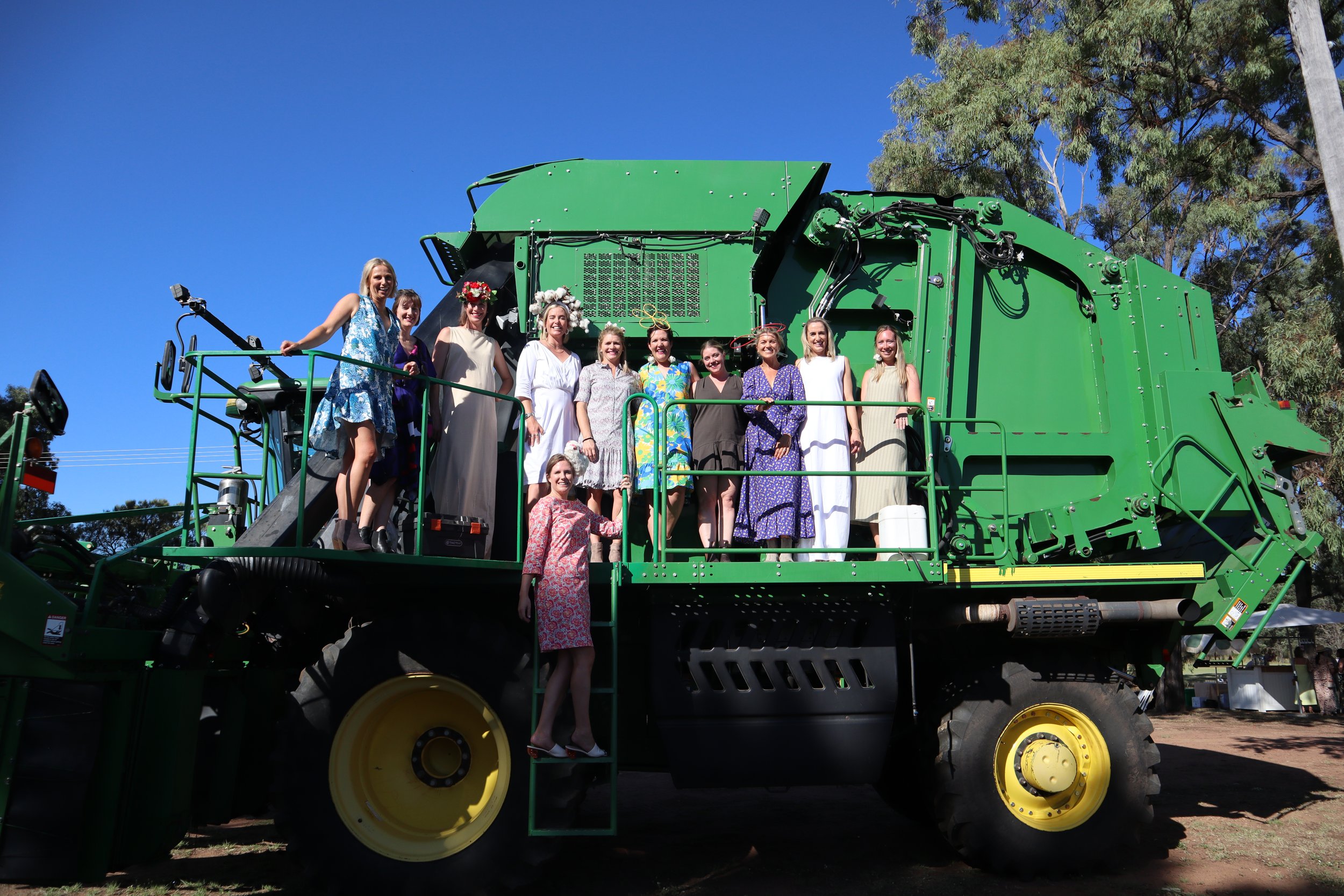Global Fashion Summit
I attended the Global Fashion Summit in Copenhagen and chose to illustrate and take notes so that I may visually share key messages and the passion clearly present, driving ambition to action!
Illustrations and notes were made from life, at the event- often whilst standing as there were so many of us keen to listen! I have chosen to share quotes from speakers below, and my own thoughts at the conclusion. Full gallery at end of this post.
Where we are now
There is no other industry that over produces as business as usual! - Pernille Weiss, Member of the European Parliament
Whose voice is still missing in the accord? Factory owners! - Miran Ali, Managing Director, Bitopi Group
Key questions
How do we change the textile system to the benefit of all of us.. the best social way possible? -Lars Fogh Mortensen, Expert on Circular Economy, Production and Consumption, European Environment Agency
This mind shift is rooted in stories. Who should fashion serve? Who is it currently protecting? How can we do better? -Kaja Grujic, Brand Marketing Assistant, SOJO
What do I want to leave for my kids? What are the leavers I have? - Thomas Liske, Global Director Logistics, PUMA
Action required, solutions & thoughts
Push for innovation and action at scale - Federica Marchionni, CEO, Global Fashion Agenda
Together a greater sharing of knowledge and systems - HRH The Crown Princess of Denmark
There is no finish line. .. which is absolutely true about sustainability - Noel Kinder, Nike
You need to be amongst friends to solve big problems… leverage knowledge, collective experience. -Alexander Lacik, CEO, Pandora
It all starts with design. From the very beginning and through the entire supply chain - Aude Vergne, Chief Sustainability Officer, Chloé
The right to vote is a luxury. Use that power to create change. -Lars Fogh Mortensen, Expert on Circular Economy, Production and Consumption, European Environment Agency
Agriculture is part of the solution -Philippe Birker, Co-Founder, Climate Farmers
Success is dependant on collaboration - Joris Oldenziel, Executive Director, International Accord for Health and Safety in the Textile and Garment Industry
We can all play a role but it is going to cost you money… we all got to commit to the agenda, hand in hand - Nicolaj Reffstrup, Founder, GANNI
In periods of transformation, it is the poets, artists and makers that make sense of a problem and allow us to move forward. - Tim Brown, Co-Founder, Allbirds
Core messages and terminology
Cheap labour needs to stop
Waste crimes (referring to the mass poor quality second-hand clothing exports)
Importance of moving forwards with social impact at forefront (as well as sustainability)
We need all the actors to commit to change
Supply chains - these are people, not machines!
Behavioural change in the way we use fashion can have a large positive impact
Need to grow and celebrate slow fashion practices, such as repair
Nature and fashion are inextricably linked
Complex does not mean impossible
We need to produce clothes that are quality and long-lasting
My thoughts
These conversations, global perspectives and travel make me so aware and fortunate of my home, Australia. We Aussies are not perfect. There is much we can do better. However, I am proud of our local Textile and Primary Industries. Australia is home to some great local leaders and innovators working proactively. From the Australian Fashion Council launching Seamless, and the Australian Fashion Trademark to Cotton Australia and CRDC for their vast research that makes the Australian cotton industry one of the most water-efficient cotton industries in the world! Locally we have cotton textile waste returning to the soils of cotton farms, this is exciting! The Circular Farming Project is mitigating textile waste to potentially improve soil health and water retention; whilst also building awareness of the importance of fibre choices. Garments made from fabric blends or different components can’t be safely returned to the soil (without the separating of these components). Something we can all be mindful of when we design or shop.
I also love that our cotton industry doesn’t want to be the most sustainable cotton industry, but global leaders of sustainable cotton! They recognise this is a journey and consistently invest in research and action to drive this. At the summit, it was said that traceable cotton is rare. ✨Every bale of Australian cotton comes with a unique identifier barcode that can trace the bale back to where it was ginned and the area it was grown. 👏 You can’t measure what you don’t know. Traceability is an important step in the sustainability journey.
Innovators ABCH Citizen Wolf, Arnsdorf, Bassike, Magpie Goose and Australian Fashion Council ; wouldn’t it be great for you to present at a Global Fashion Summit? Would have loved to see an Australian contributor. Especially one of the above, to share how they are taking action. That said, a huge congratulations to all involved especially those of Global Fashion Agenda! Thoughtful attention to detail. Loved lunch served on mismatched preloved plates, the venue, foam-free floral install, the diverse conversations and the variety of spaces and formats of the sessions.
The overreaching message of the summit that I take home is we need a change in mindset across the full supply chain. Interestingly, it may be the words supply chain that need to be replaced with value chain, humanising the stories of our clothes.
My own thoughts raised are that people recognise the value in paying for good service. How has fashion and products become so dehumanised that it’s a constant race to the bottom? Manufacturers making a little bit more, from a little bit less. Consumers looking for the cheapest price & delighted by a bargain.
Change your mindset. Human hands are responsible for making your clothes. Garments are made of precious resources.
Is a cheap price really good value if you consider the price others, and environment paid for you?
As Dr. Lewis Akenji, Managing Director, Hot or Cool Institute raised:
We are at a crossroads. What you invest in tells your values. What you design tells your values. What you buy tells your values.
Still to come
I have much to share, (more illustrations) and some sessions will require their own individual post. I would also like to share some of the innovators that were present and photos to best explain their technology.
I was also in attendance at The Textile Exchange Cotton Round Table in Amsterdam. Much to share from this also. Follow along on Instagram , LinkedIn or sign up to the newsletter.
Your thoughts?
Did you attend? Can these questions or notes start proactive conversation? Better still, action?
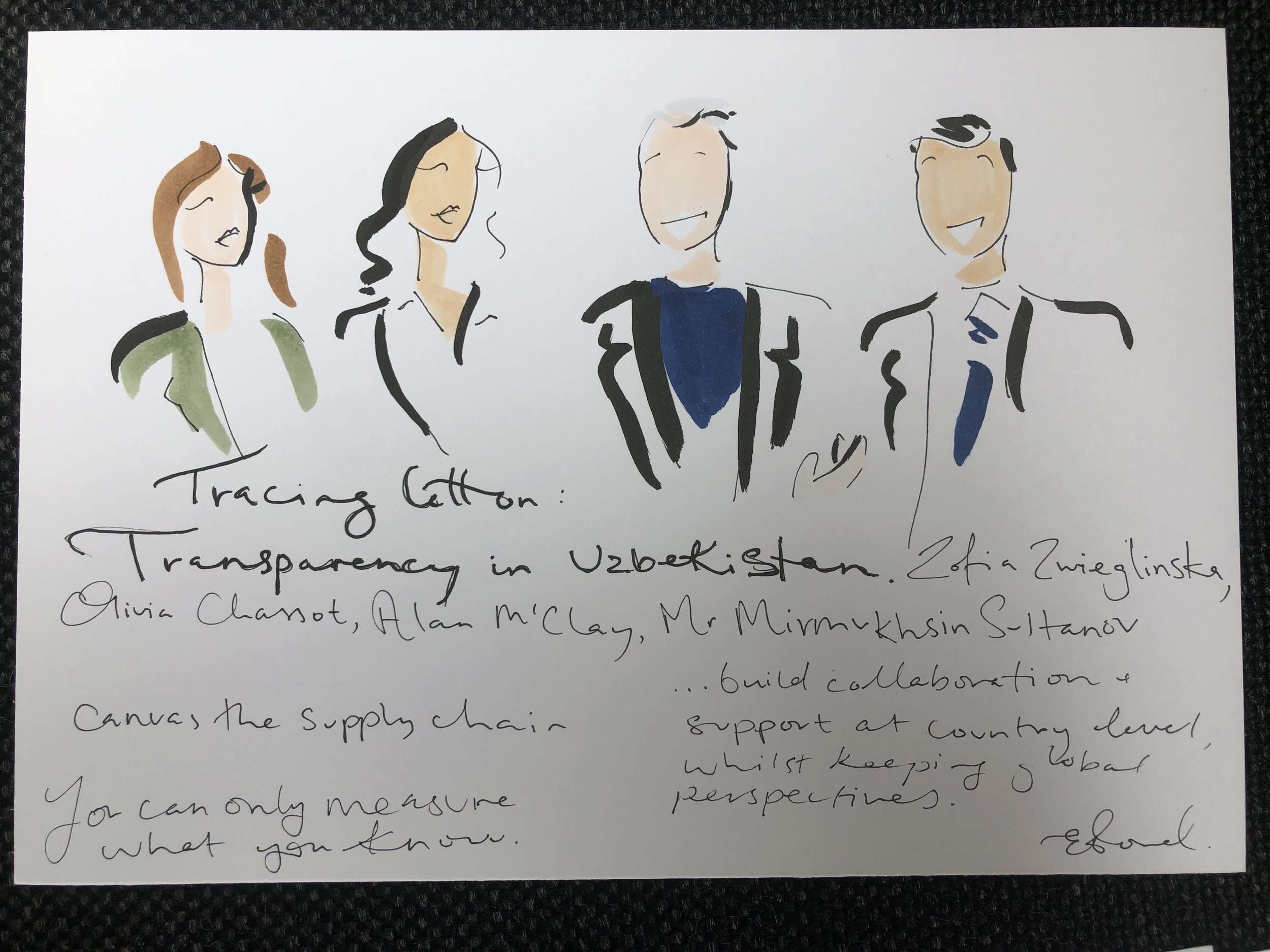
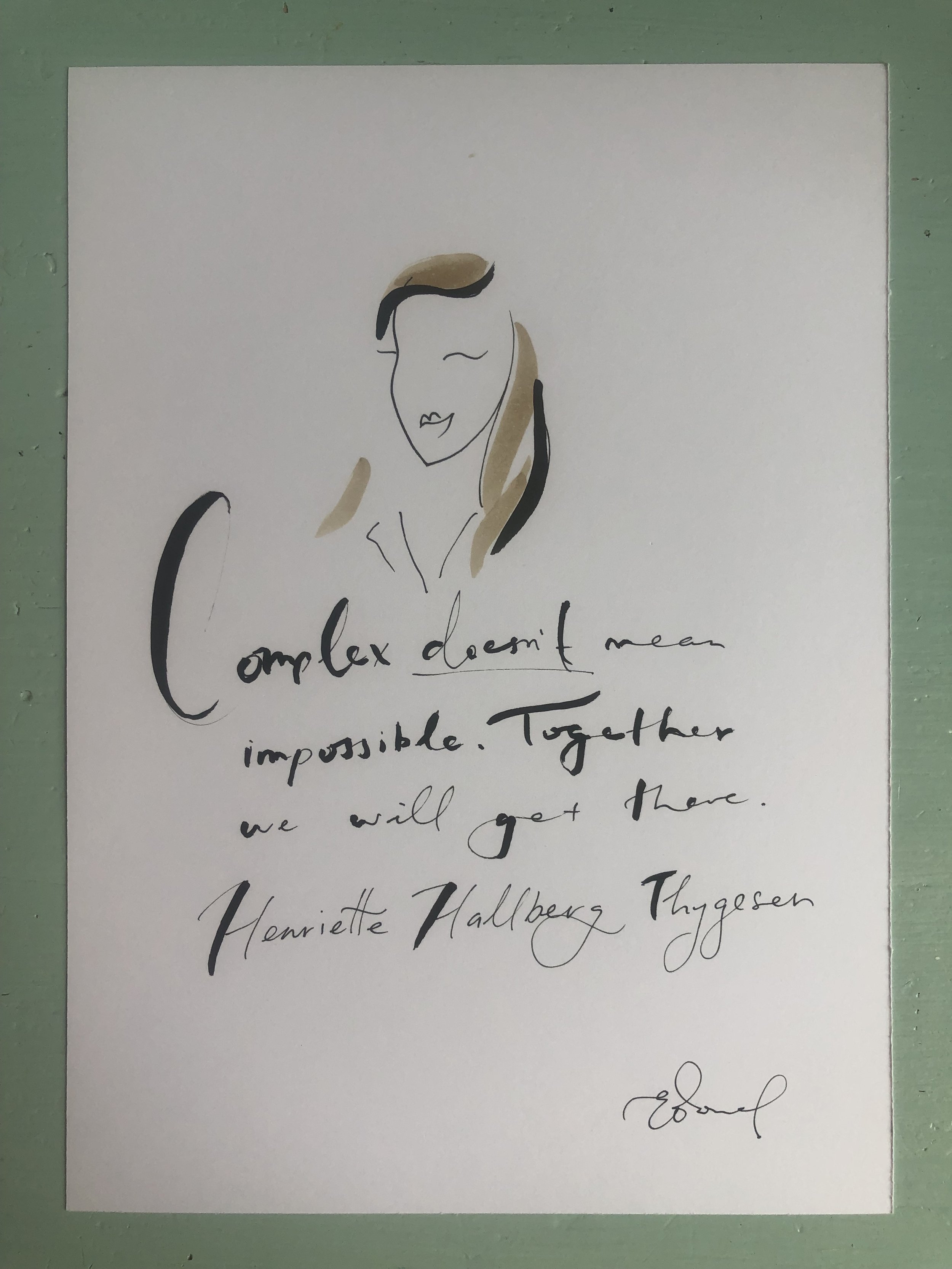
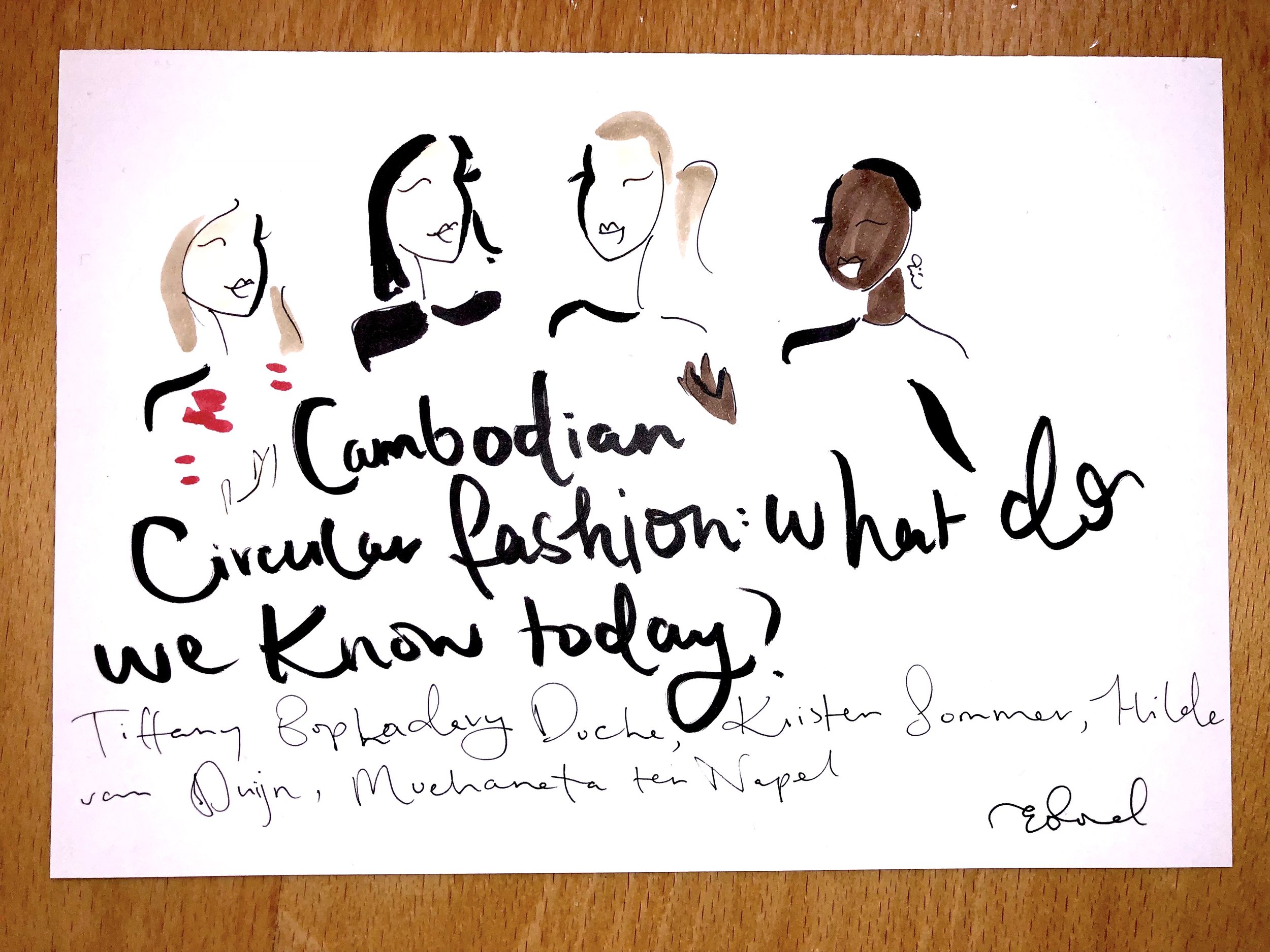
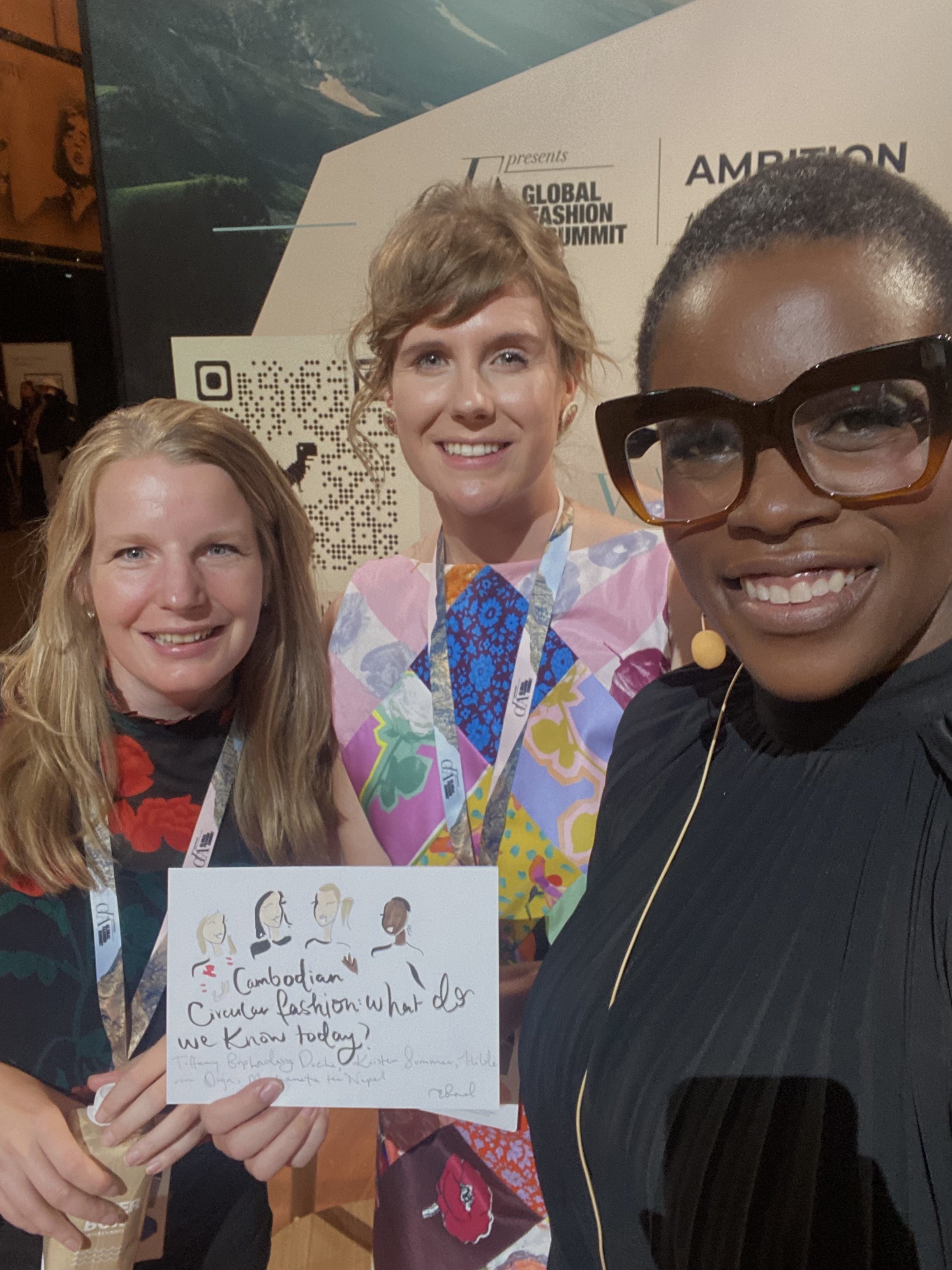
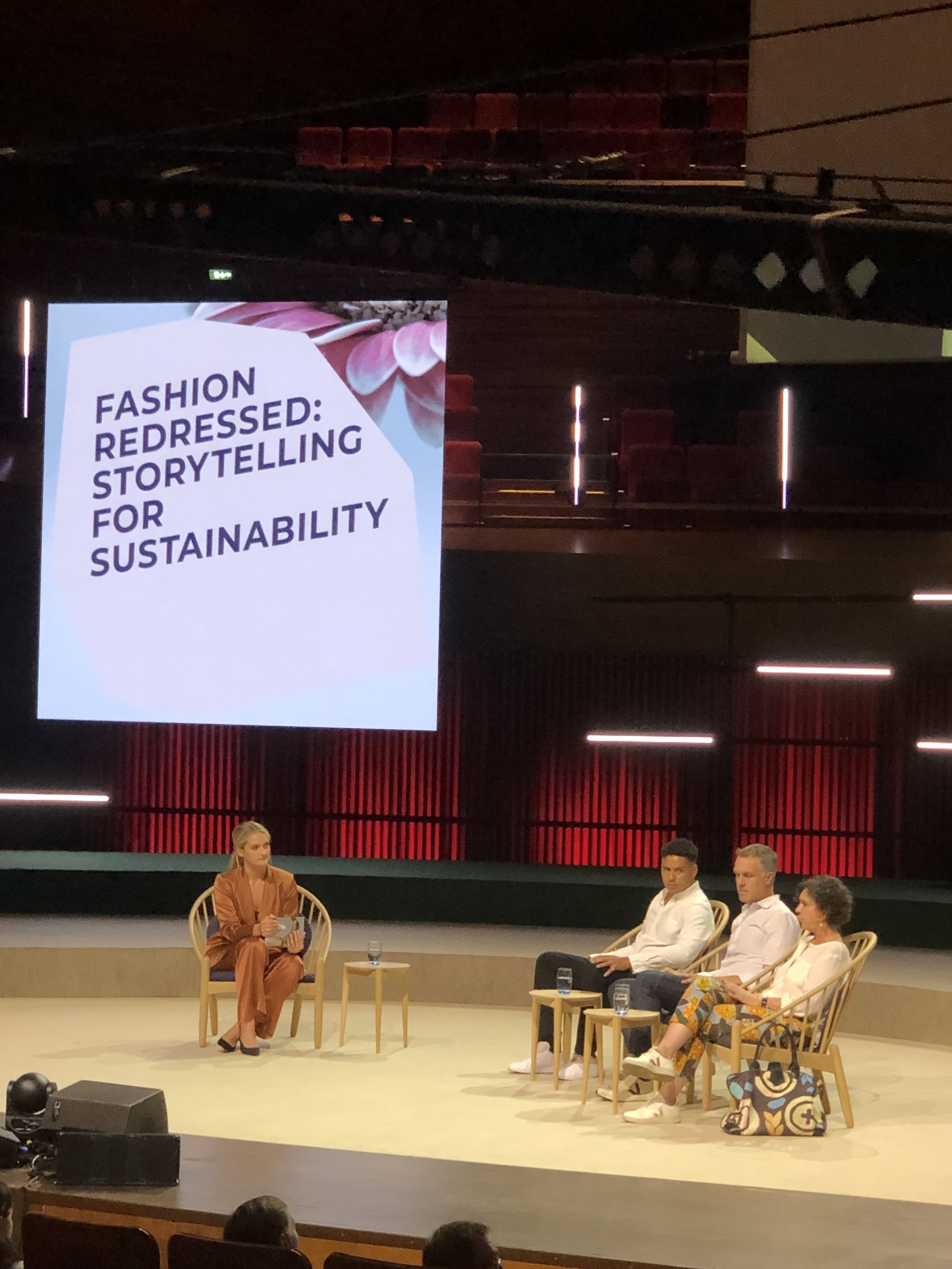
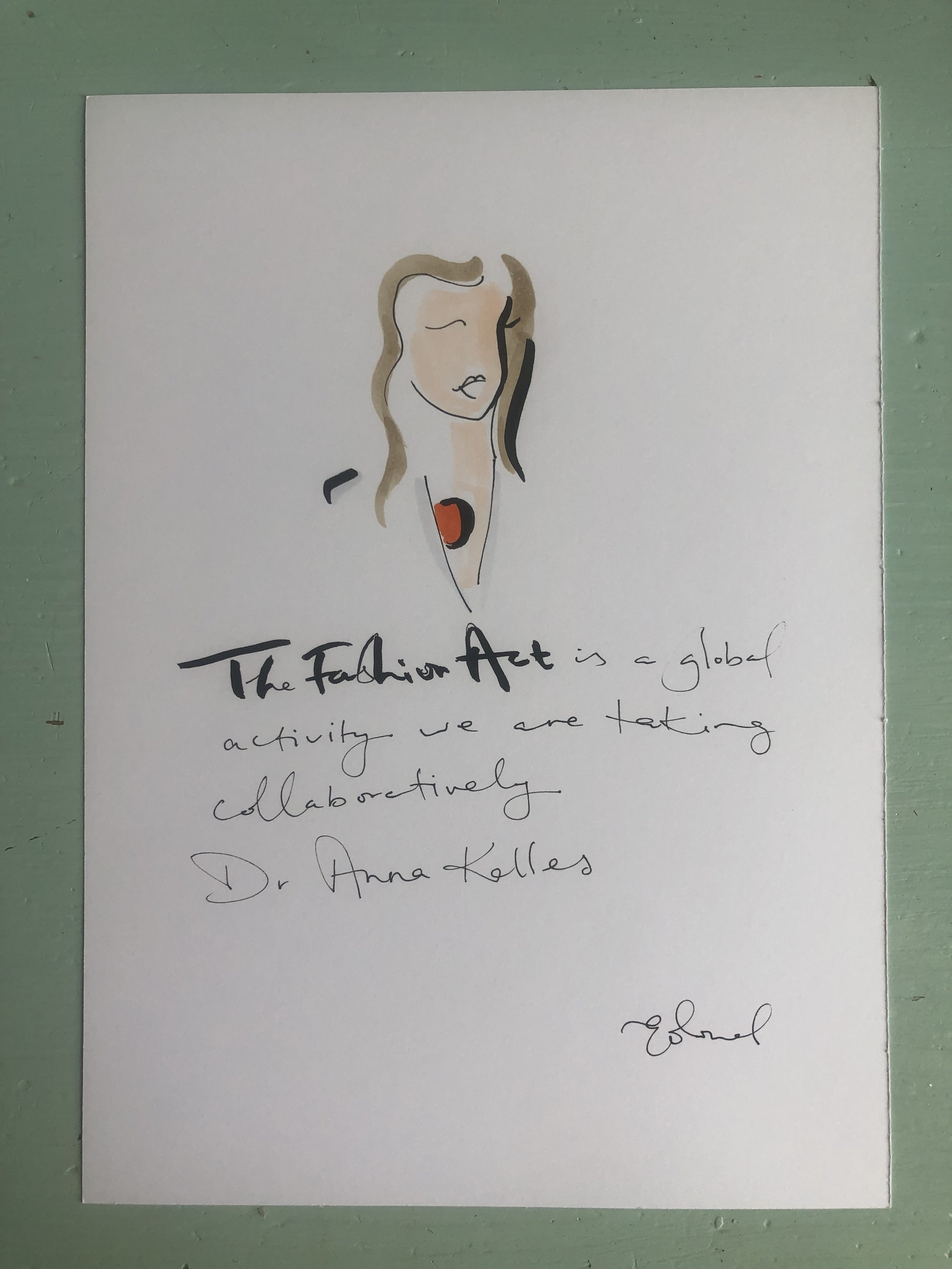
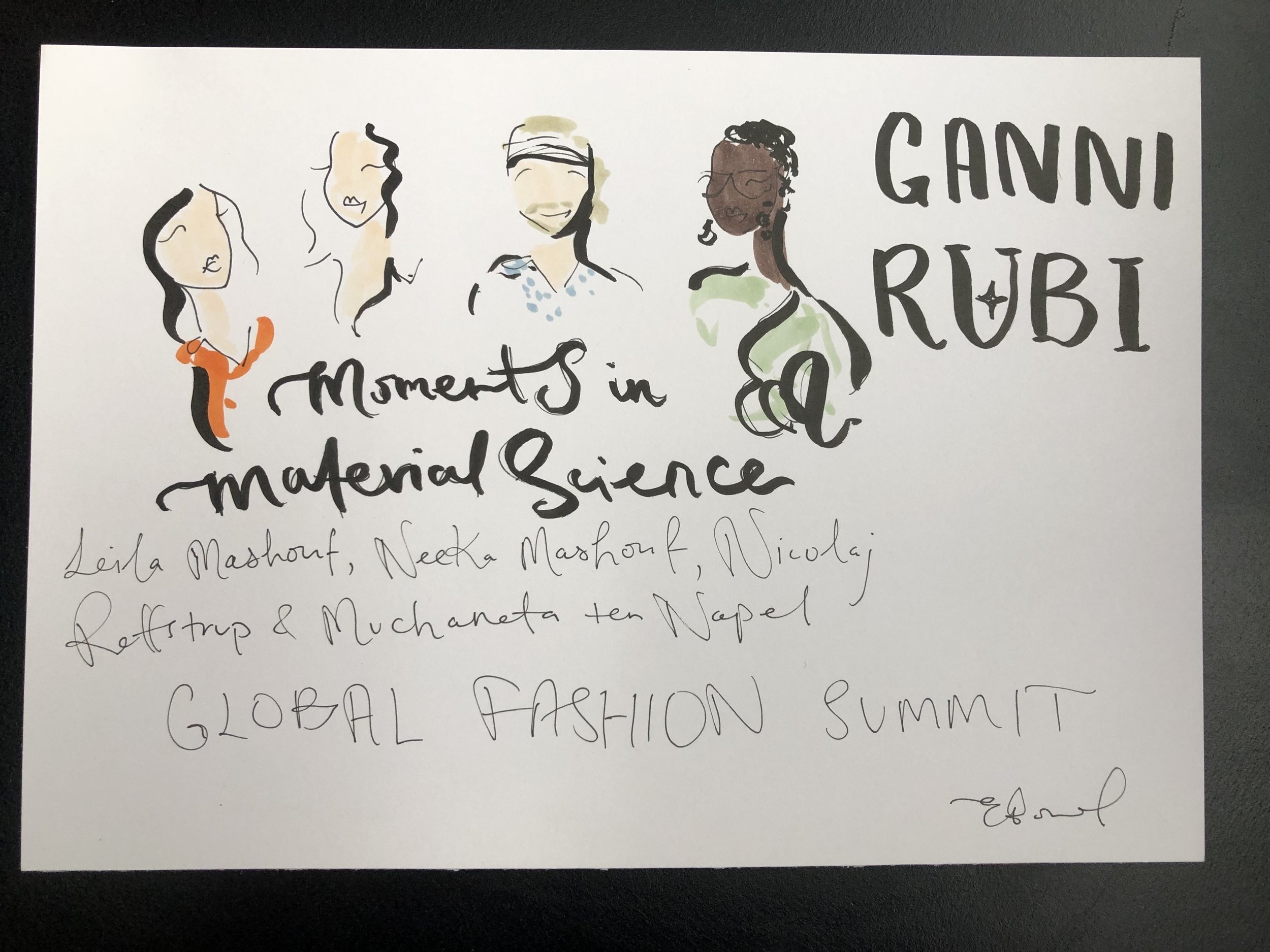
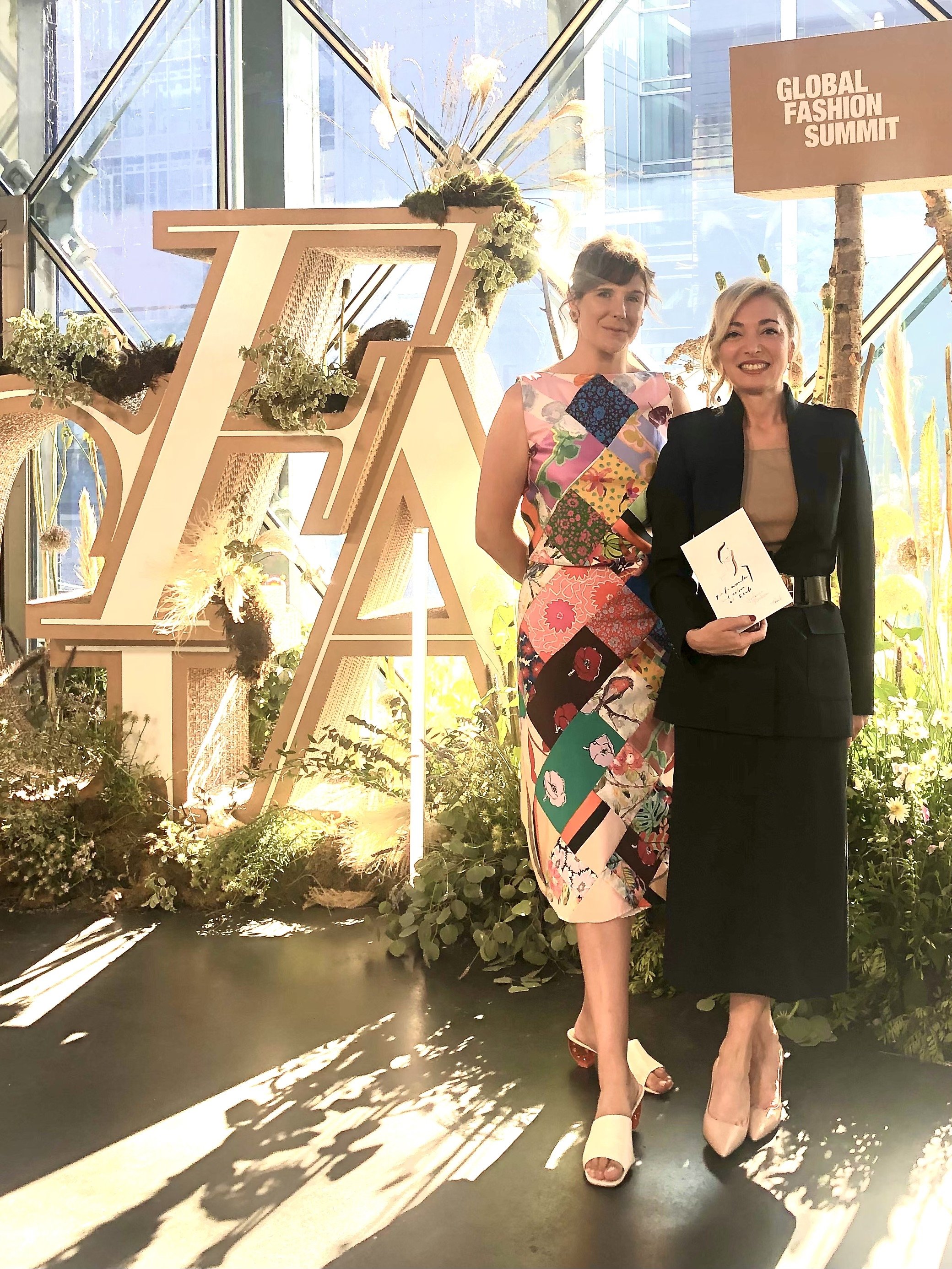
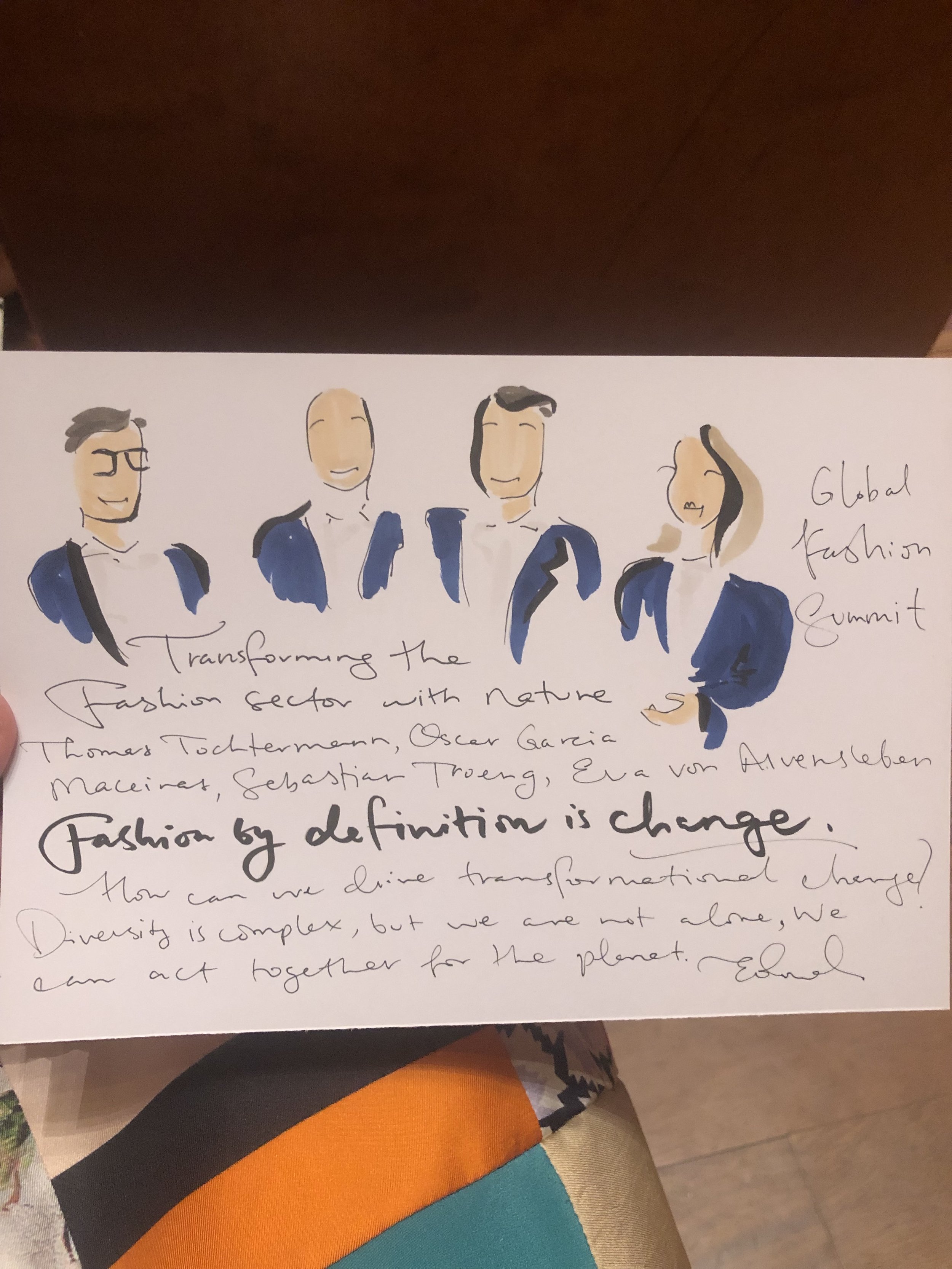
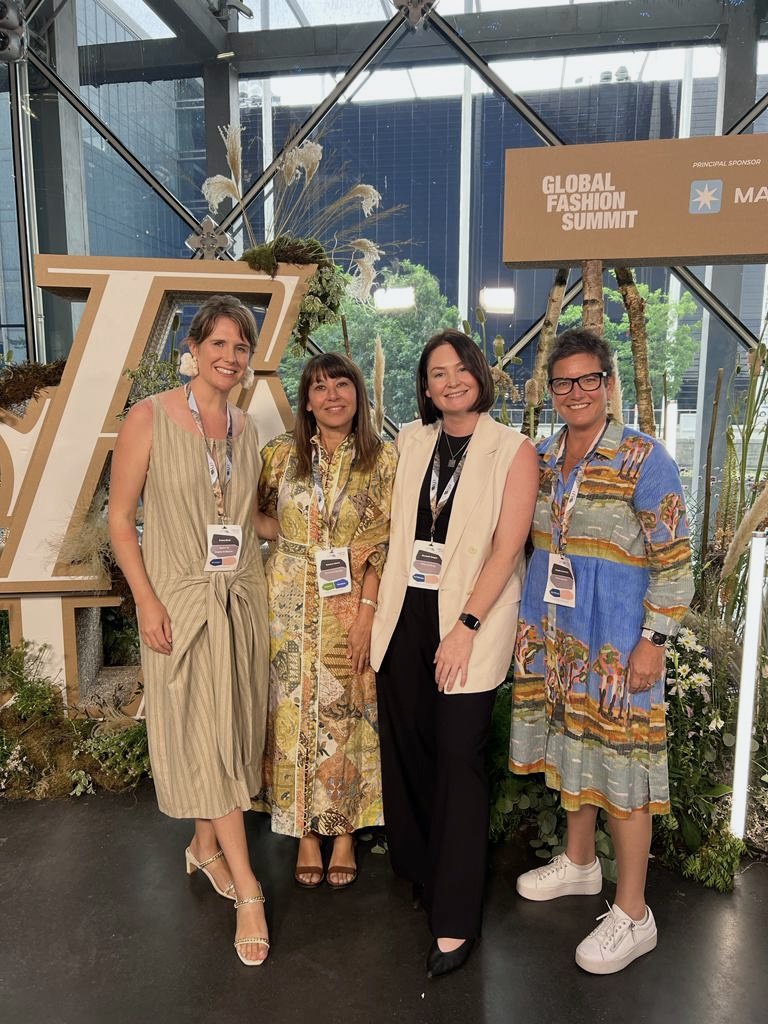
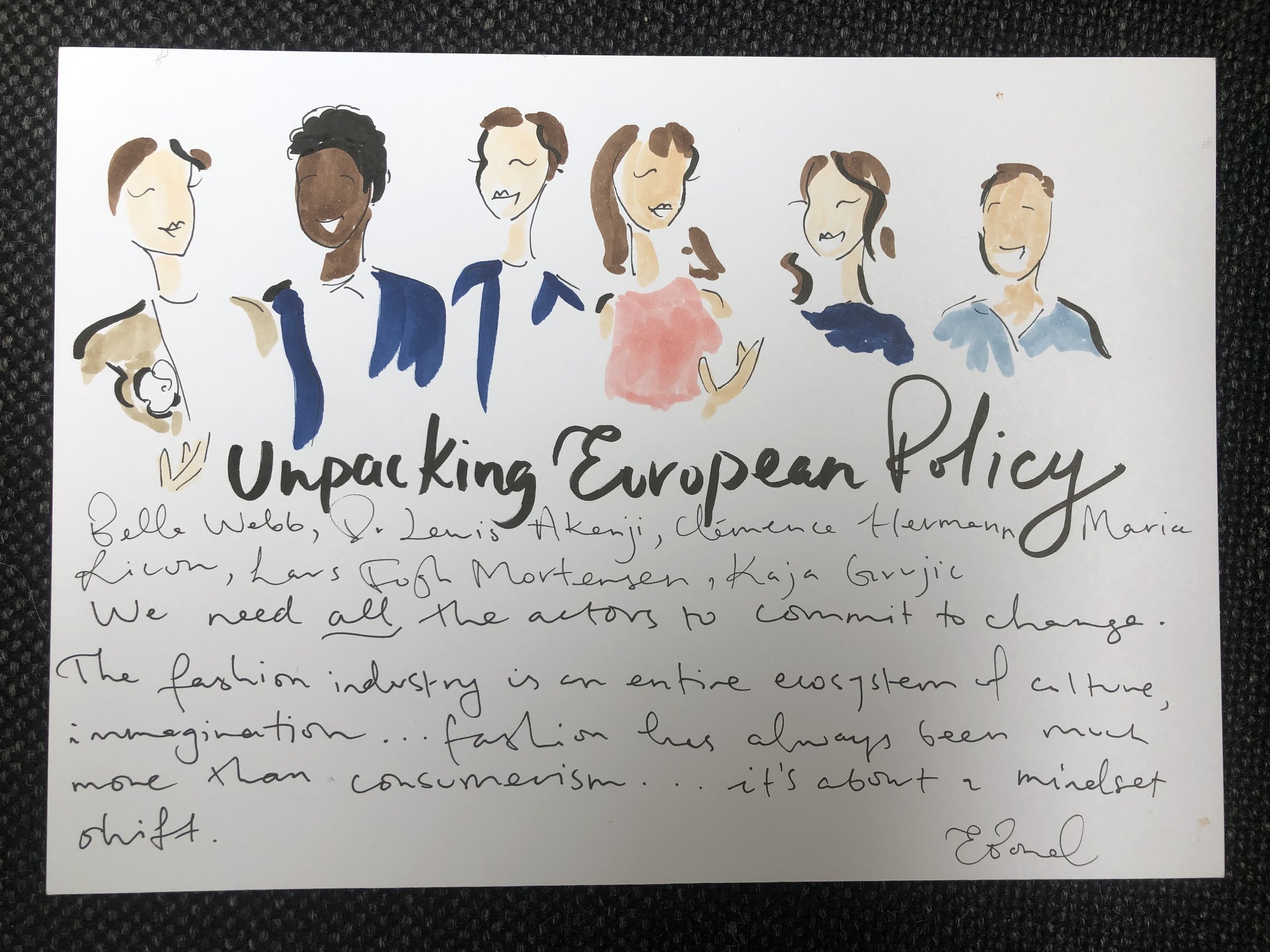


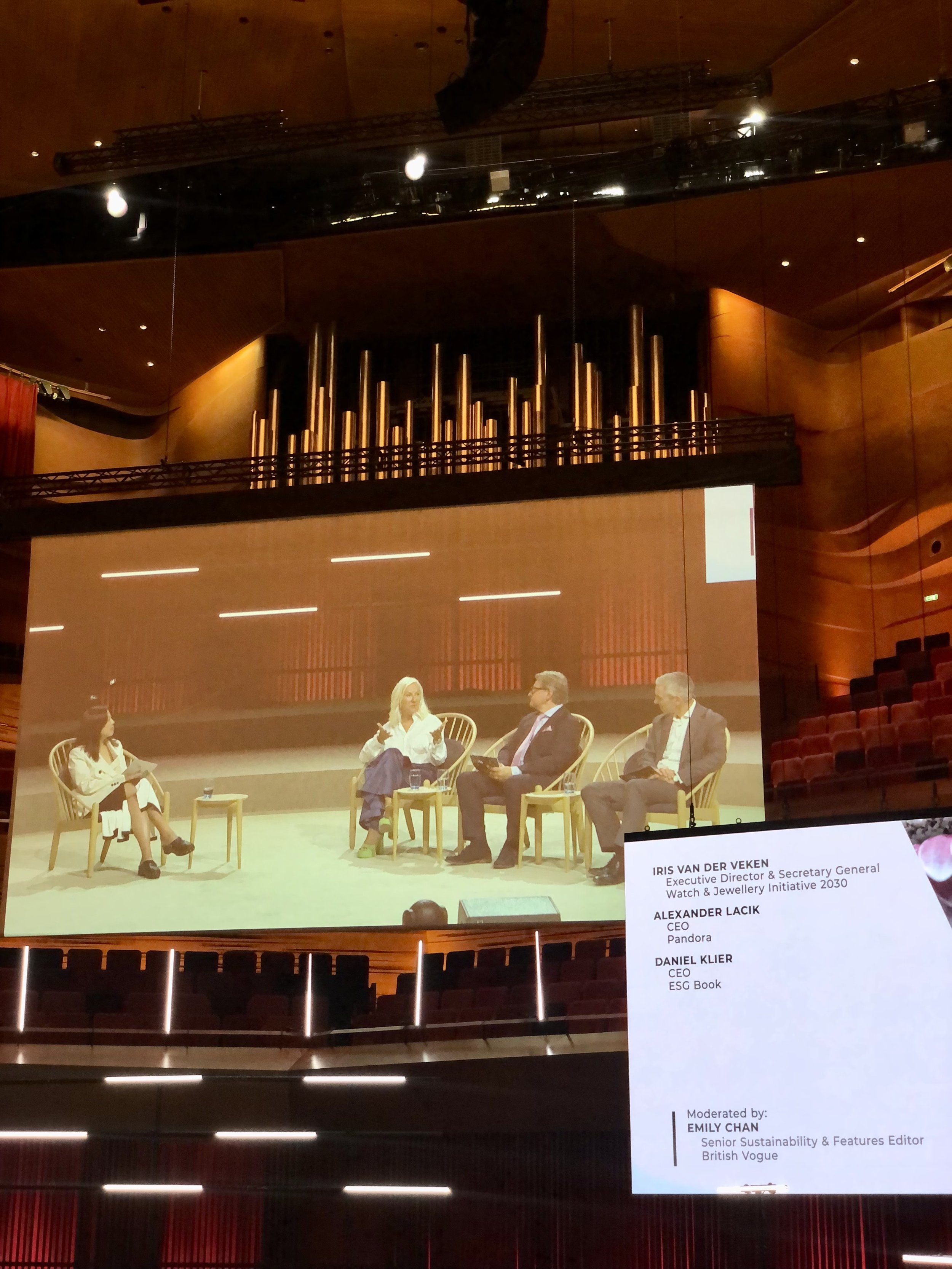
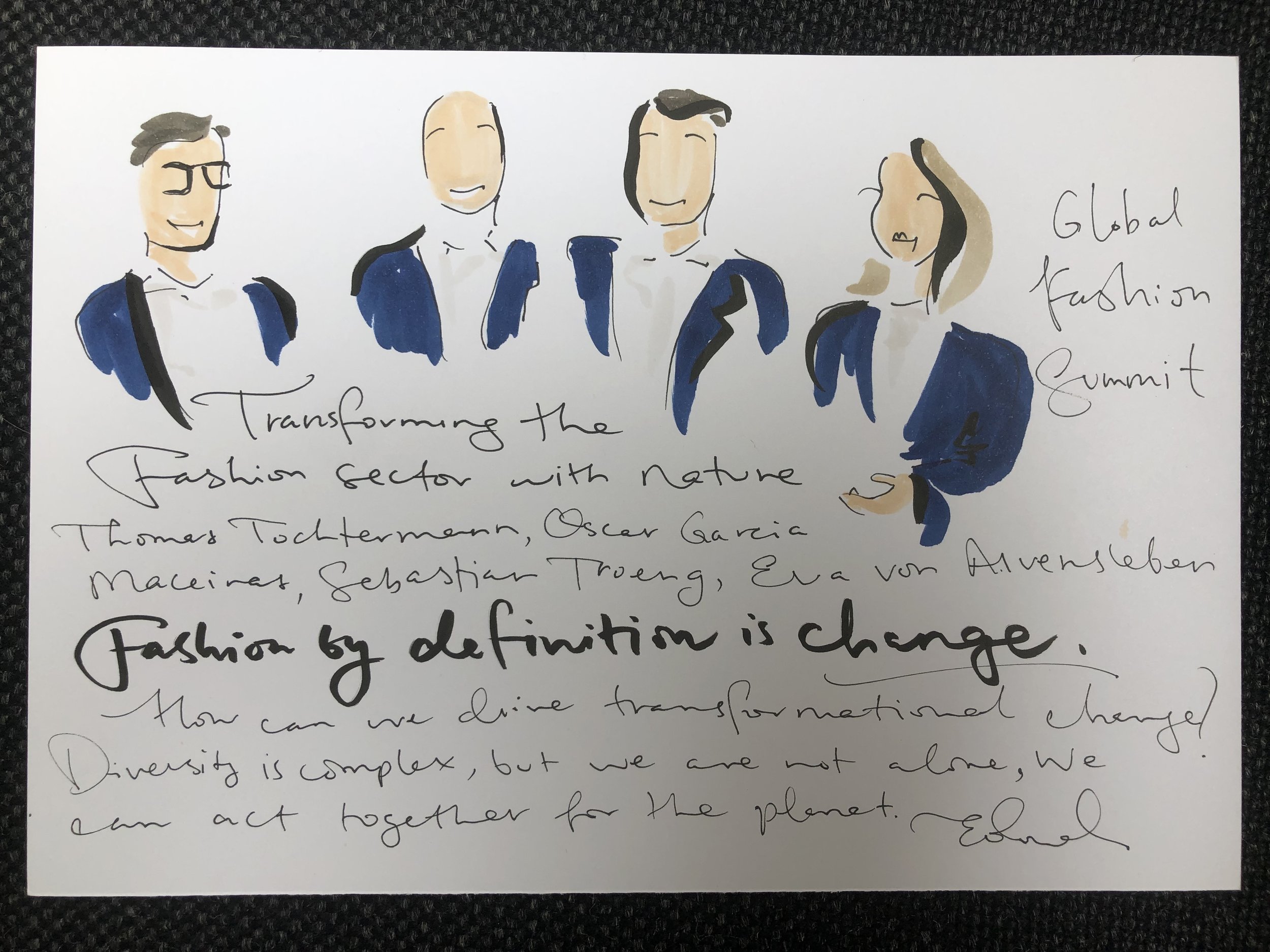
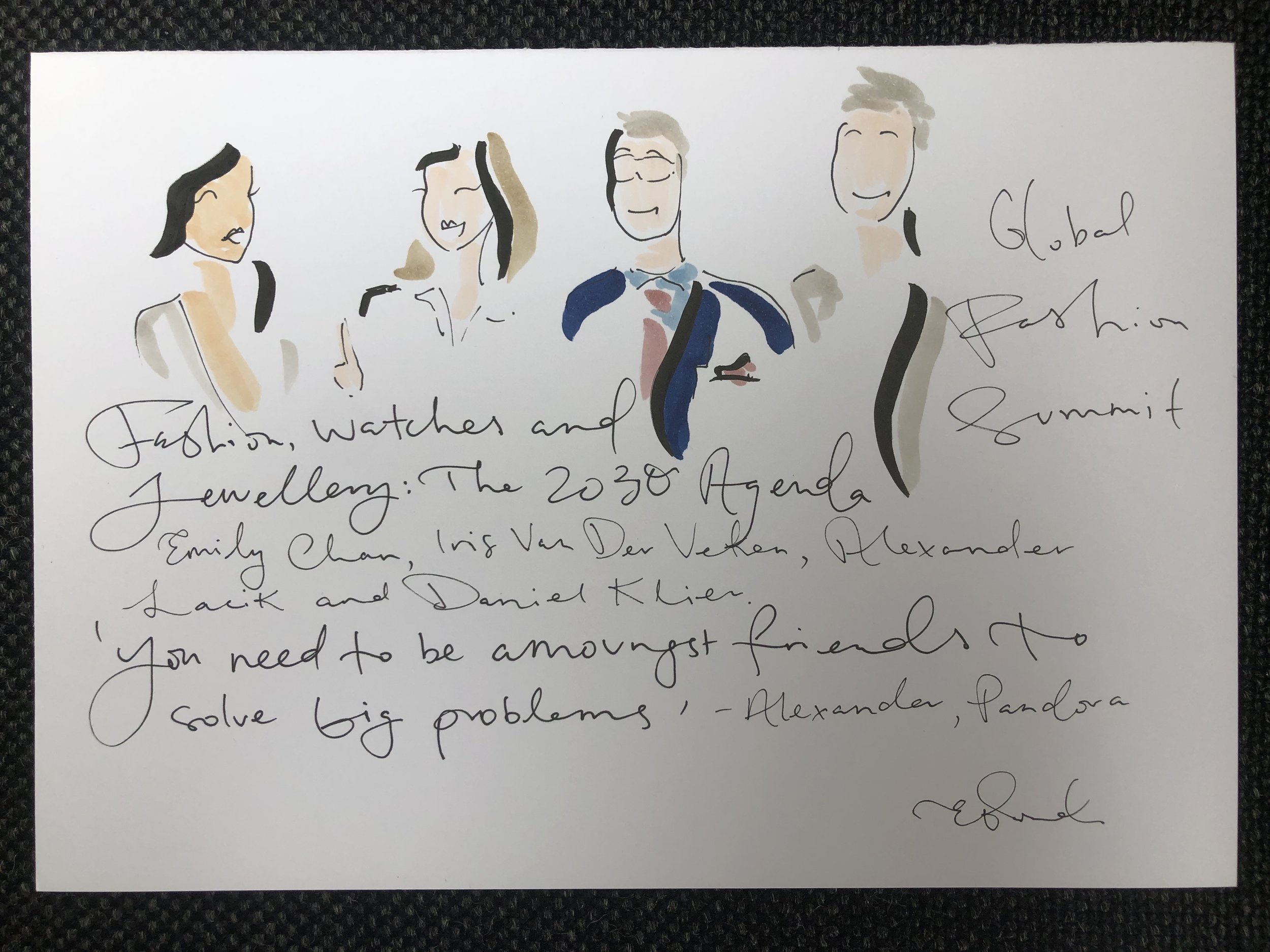
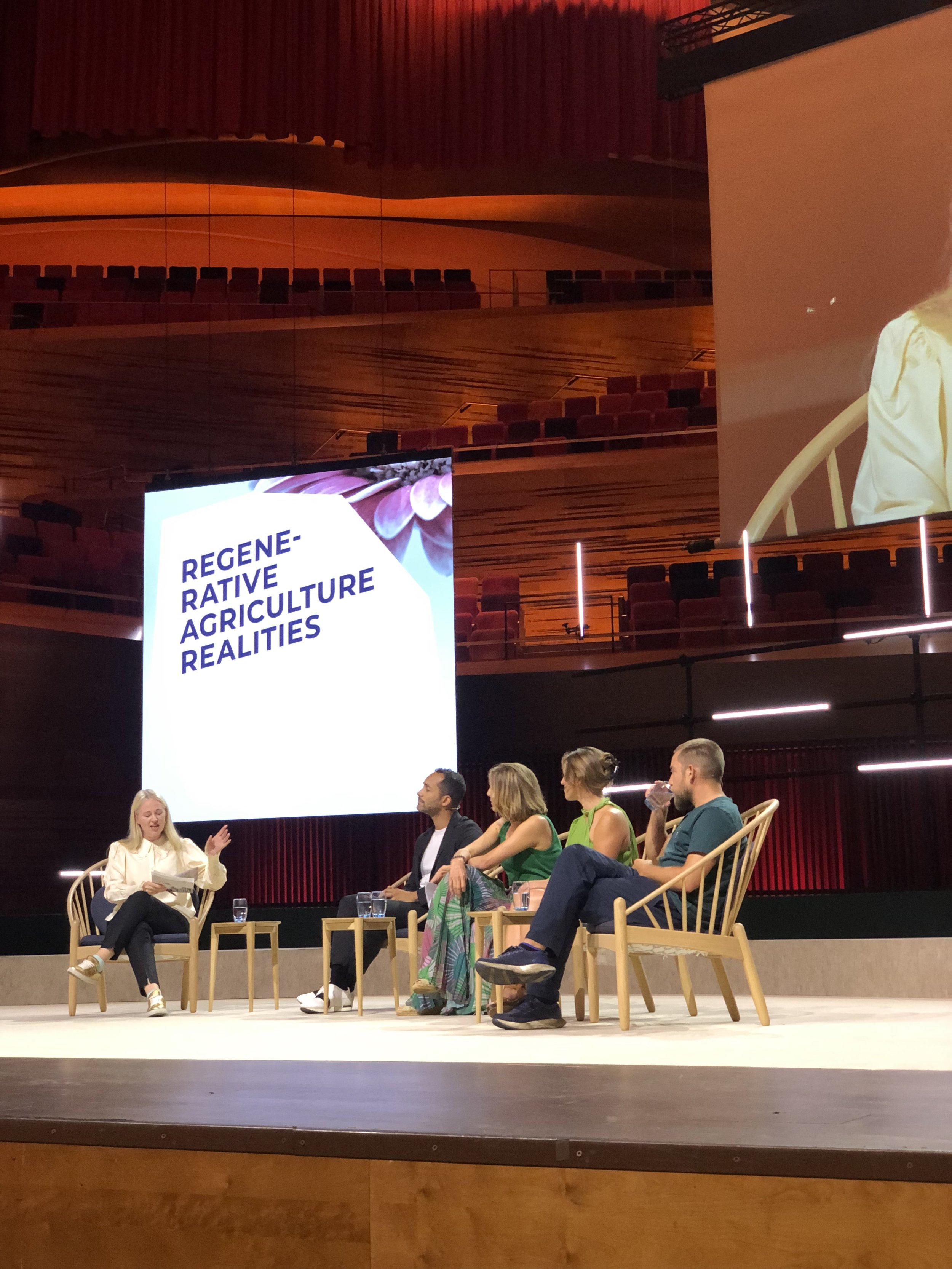
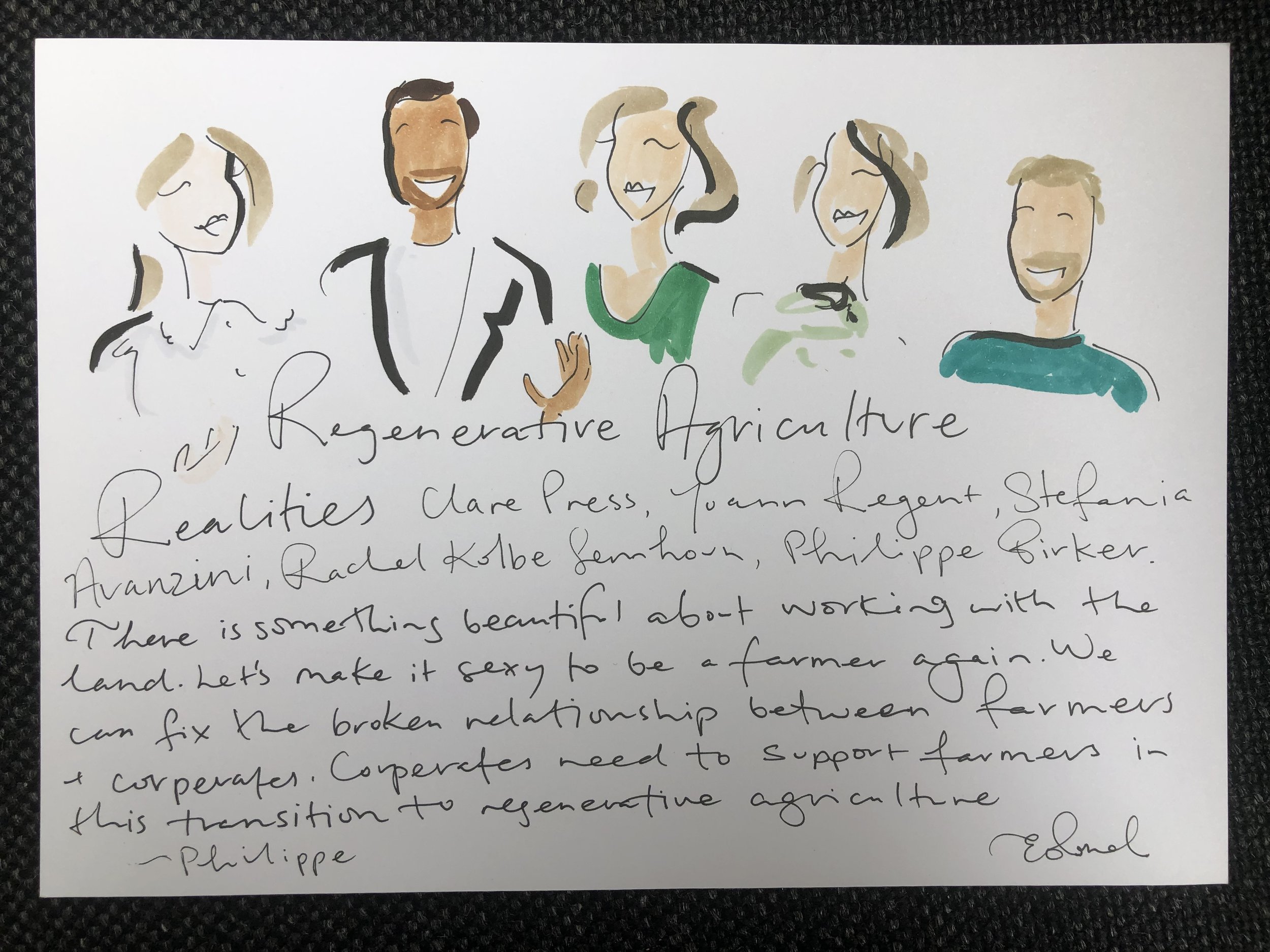
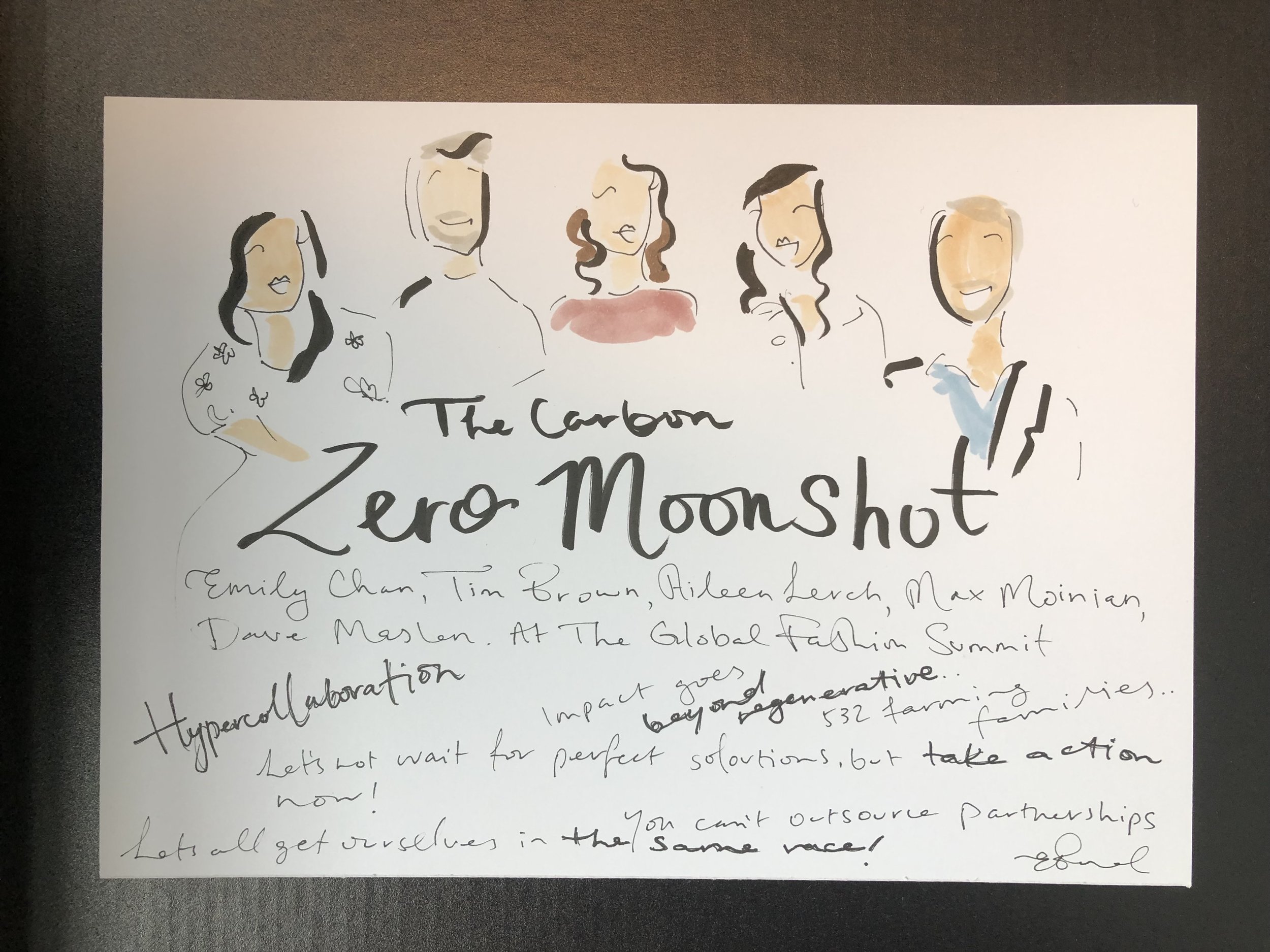
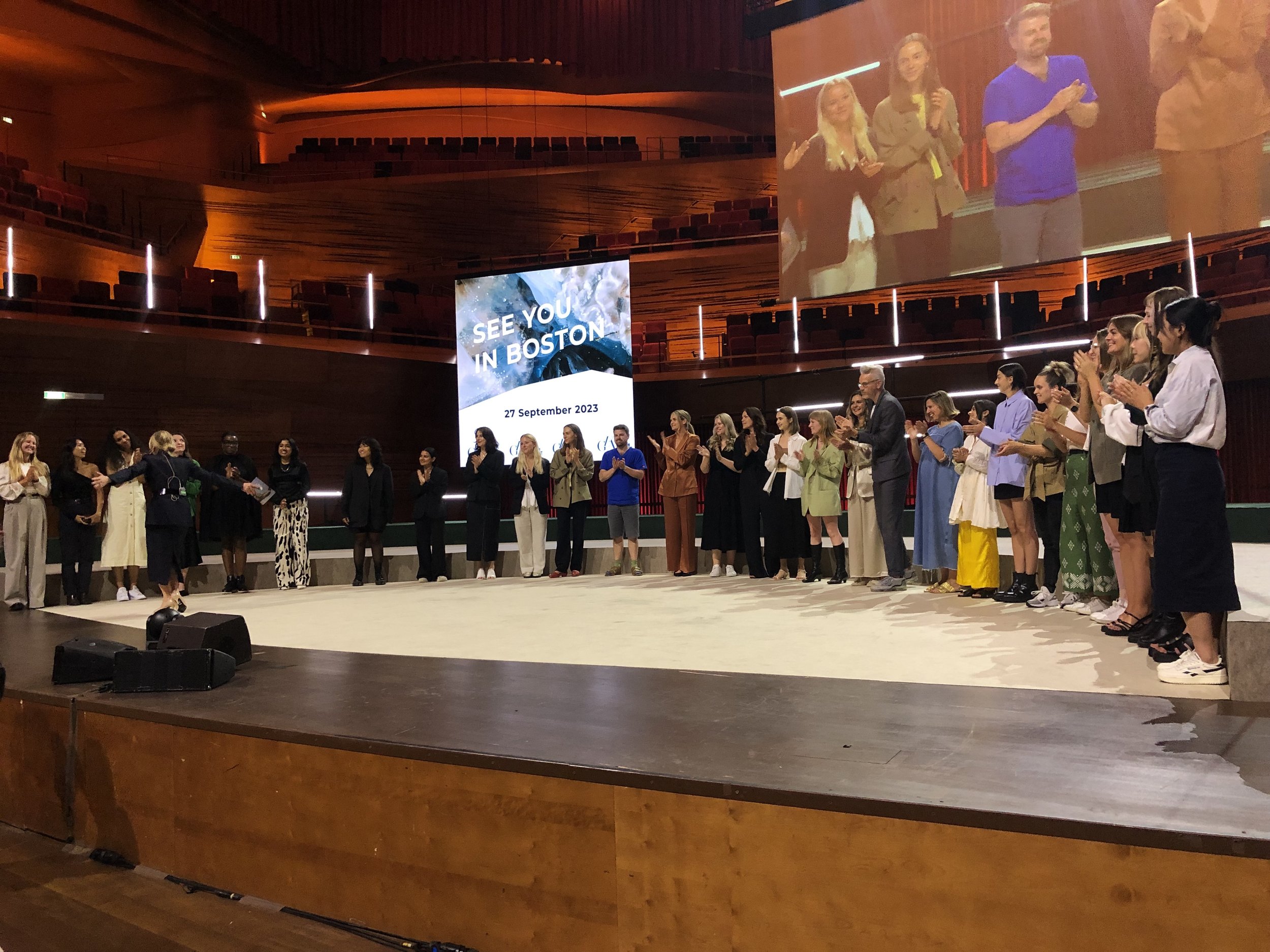
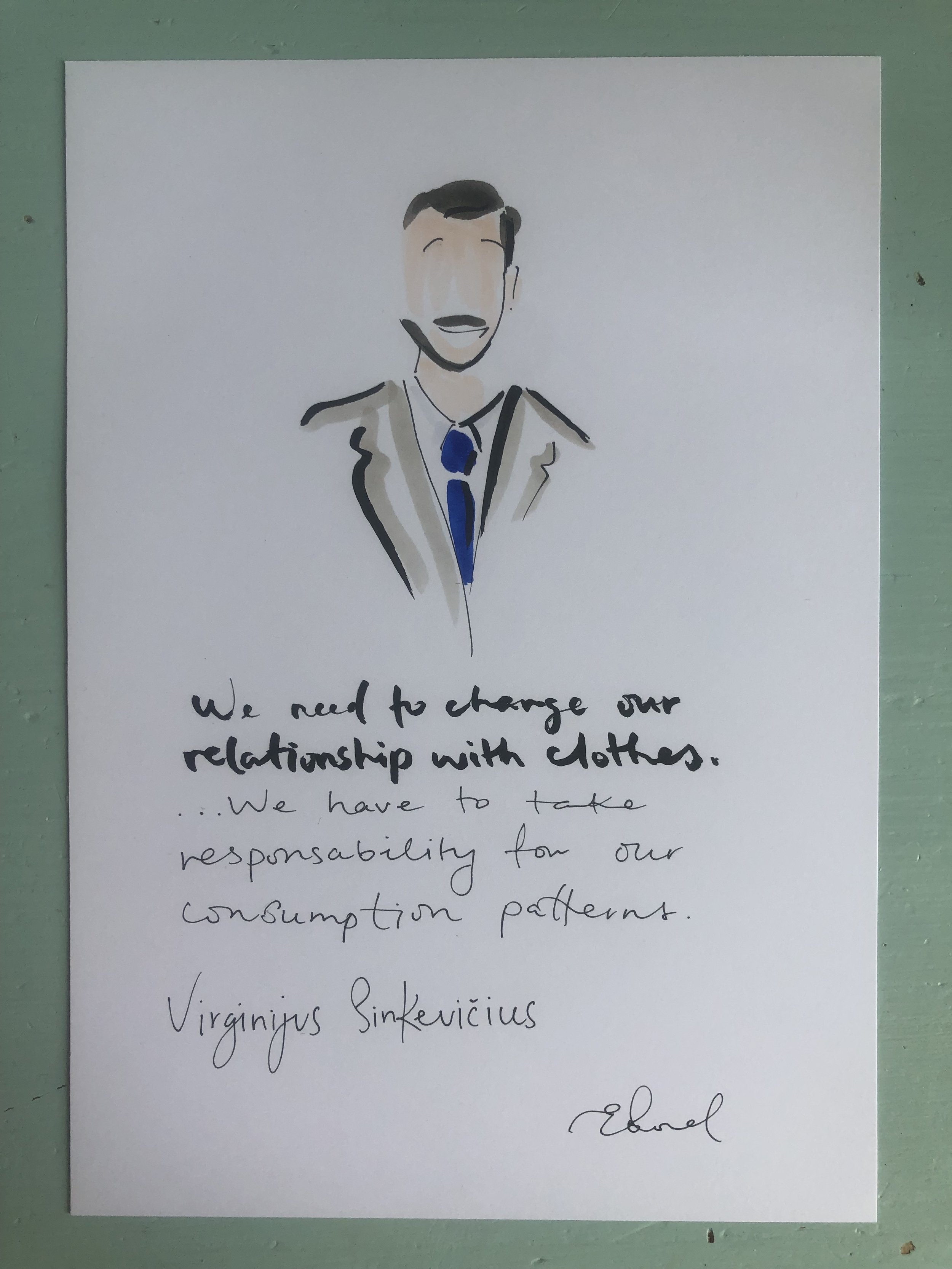
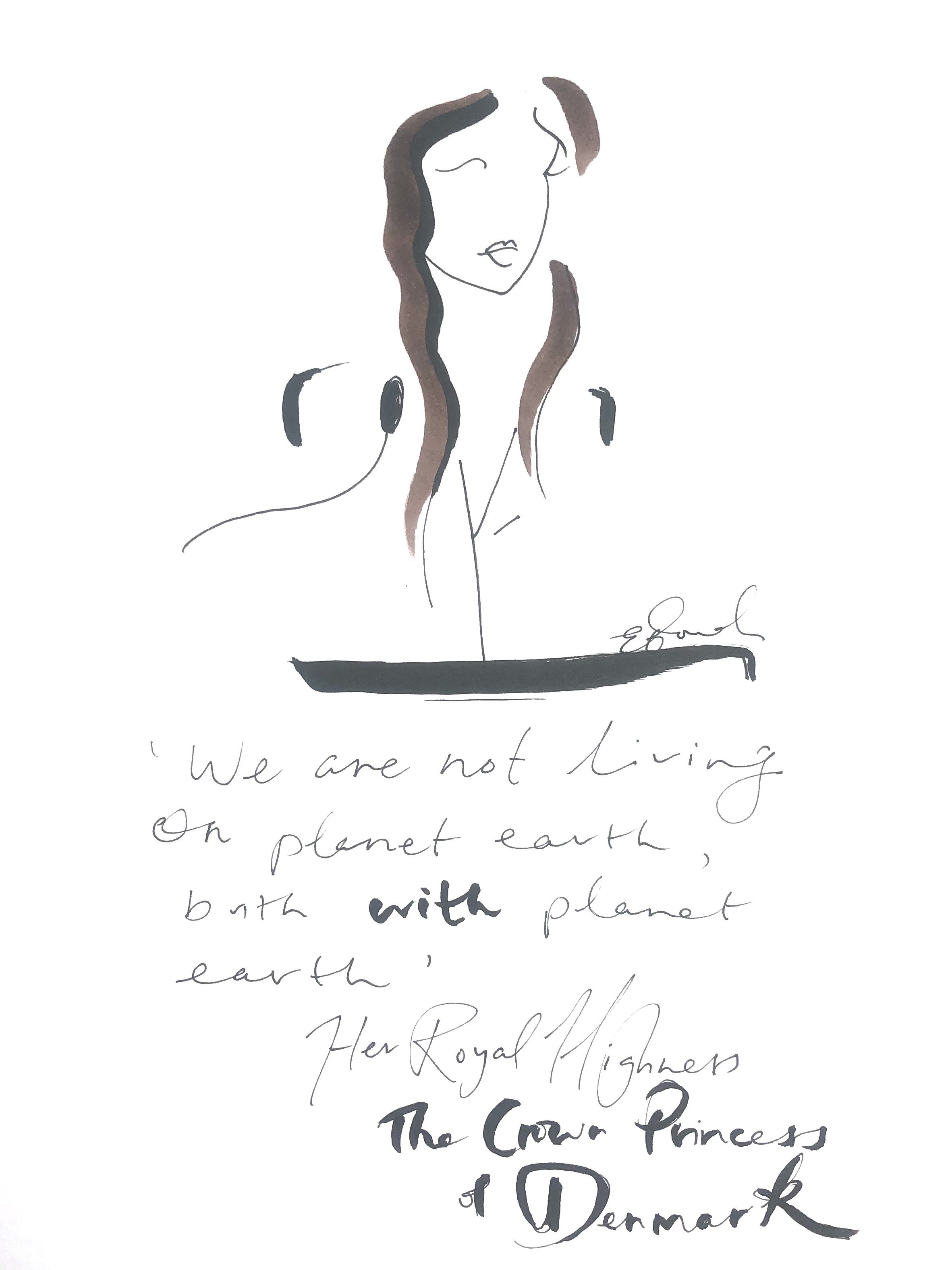

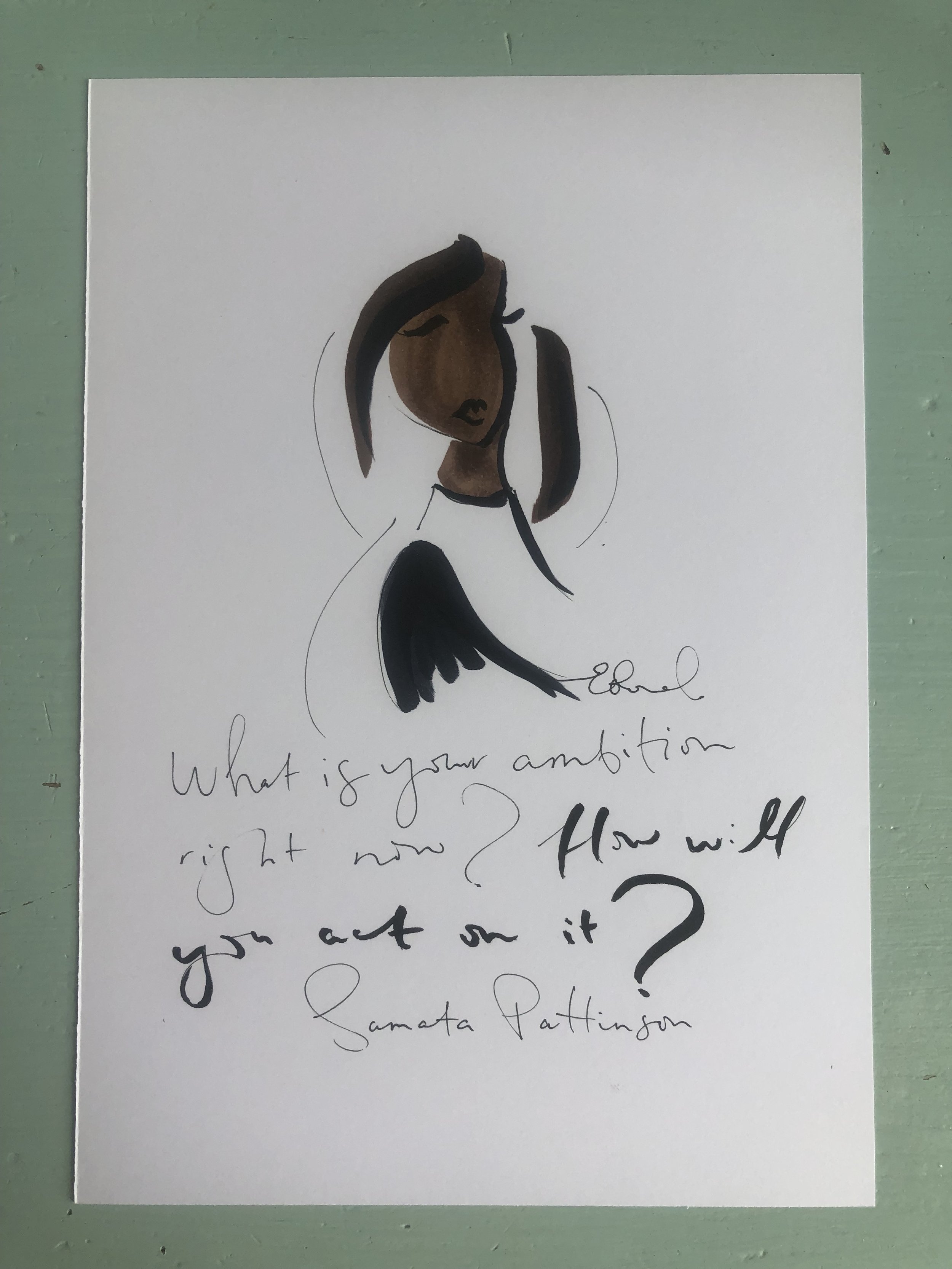

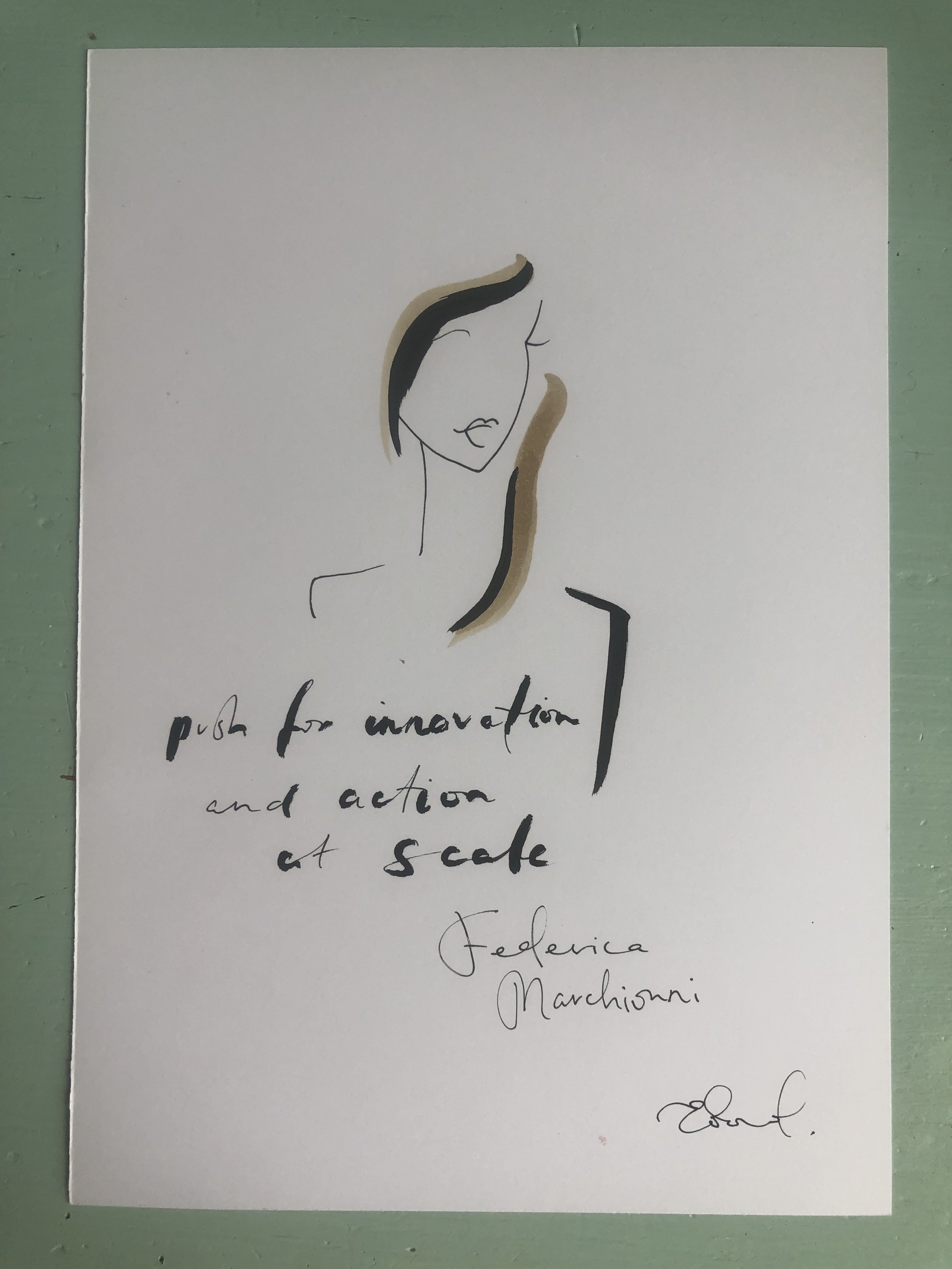
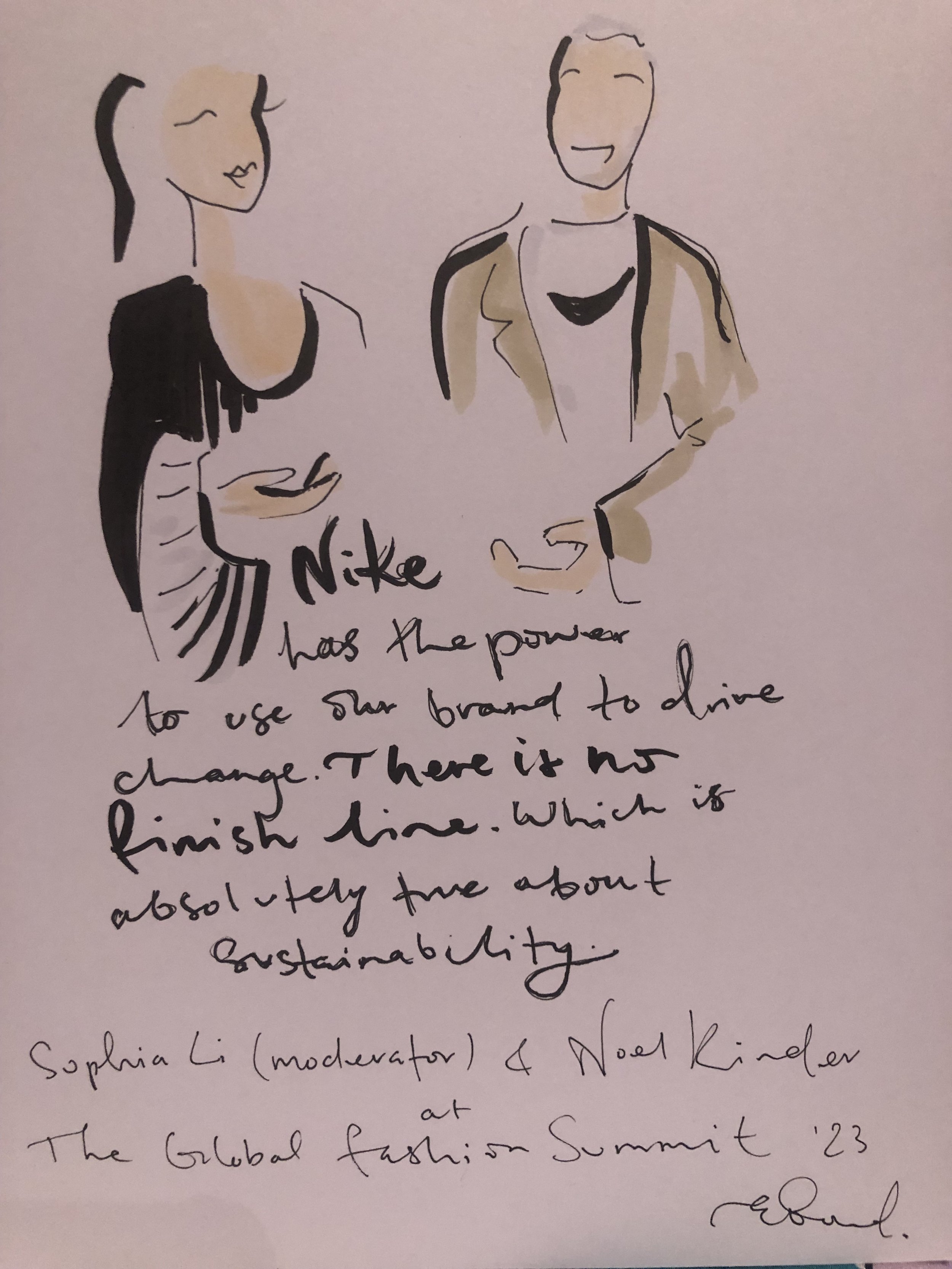
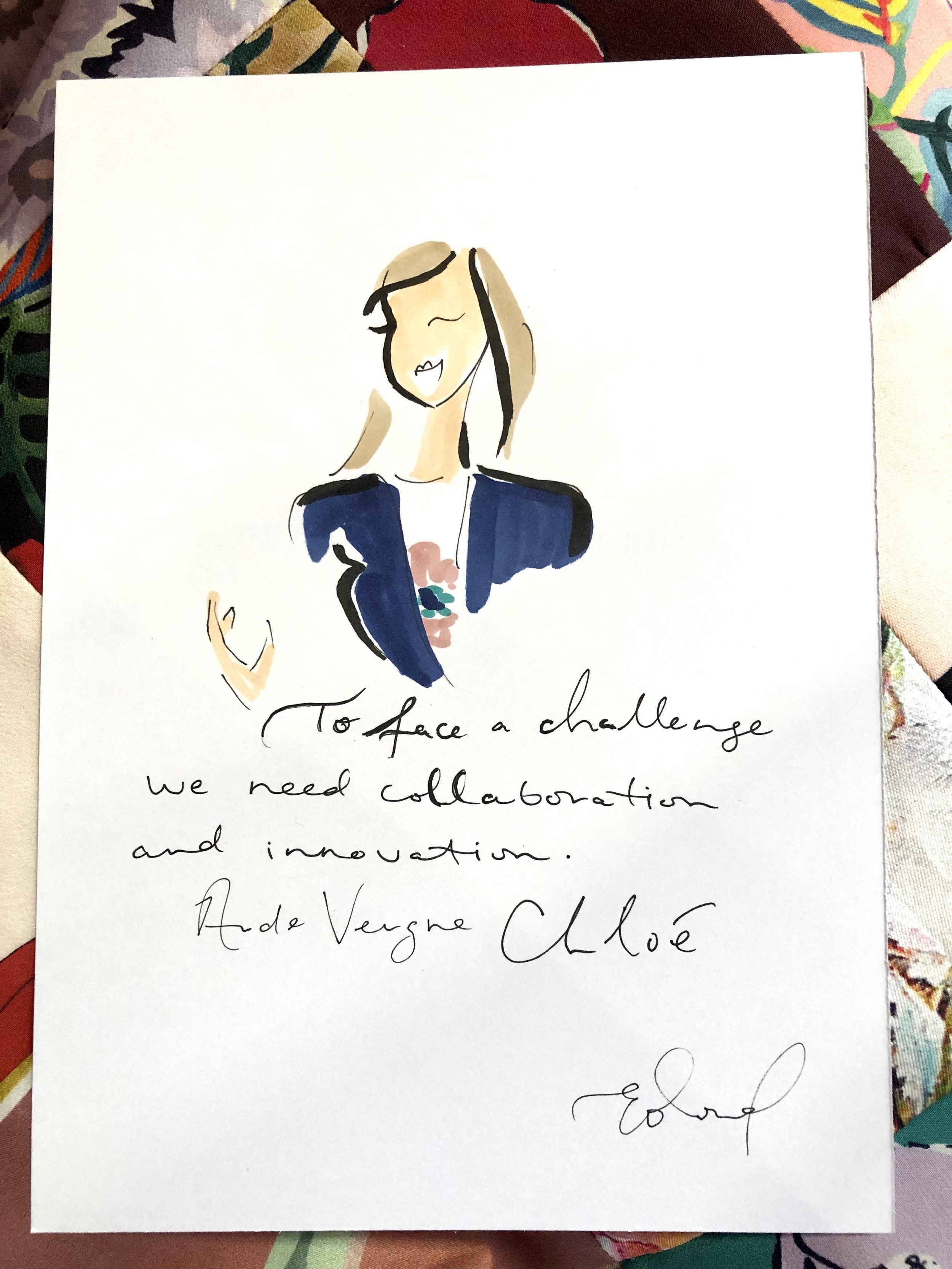
Words and artworks: Emma Bond











